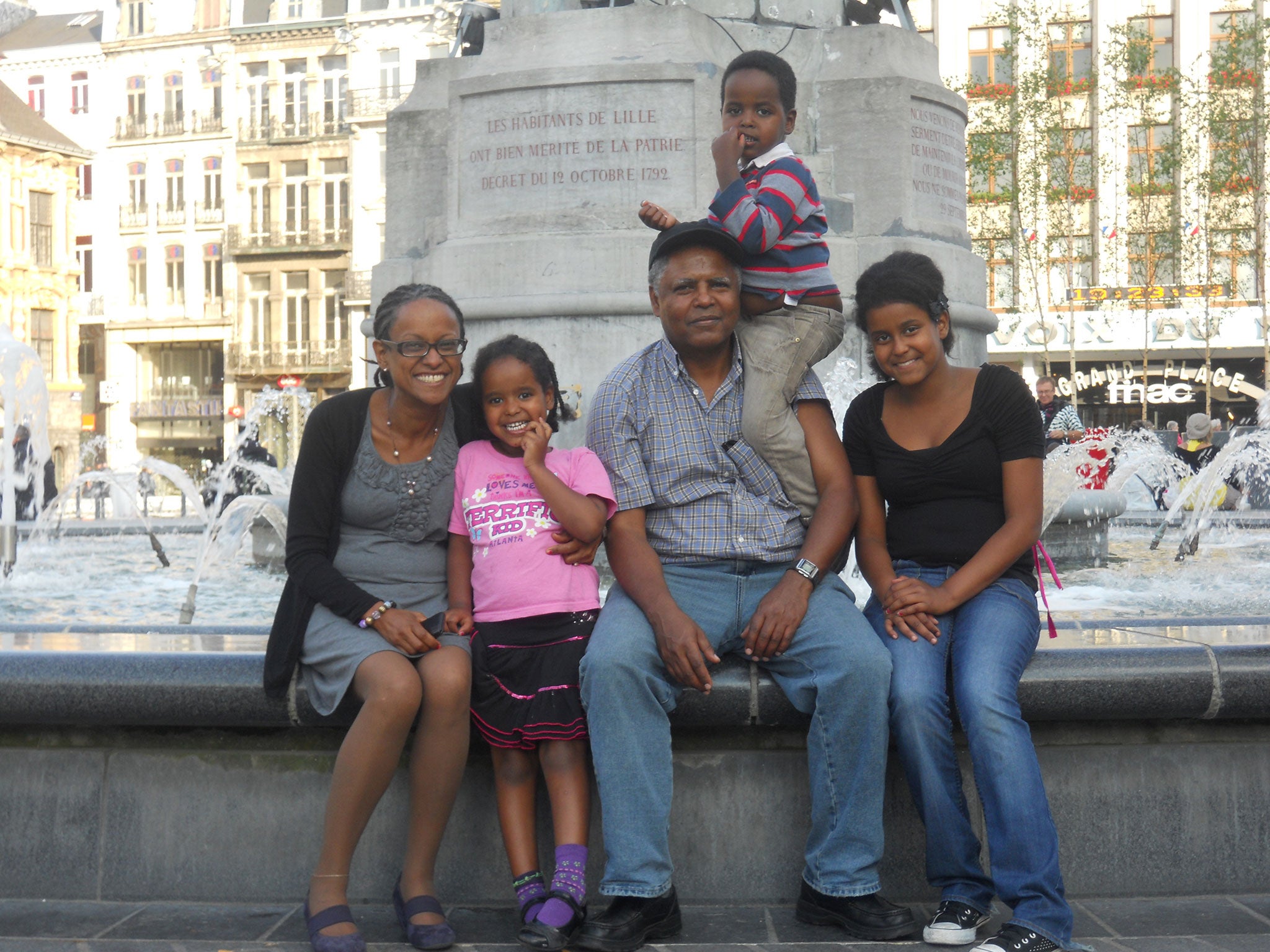Andy Tsege: Britain helps fund Ethiopian regime holding UK activist on death row
Exclusive: FCO and MoD give £1m to Ethiopian security forces holding activist

The UK Government is using taxpayers’ money to bolster the Ethiopian security forces responsible for the imprisonment of a 60-year-old Briton facing the death sentence, it can be revealed.
Human rights groups have condemned the British Government after using Freedom of Information laws to uncover the fact the UK is spending hundreds of thousands to fund a training centre run by the Ethiopian military.
Andargachew “Andy” Tsege was arrested in Yemen in June 2014, while en route to Africa from the Middle East. The whereabouts of the father of three, from London, were unknown until weeks later when it emerged he had been imprisoned in Ethiopia. A death sentence was passed against Mr Tsege – an opponent of the Ethiopian government who fled to Britain as a political refugee in 1979 – after a trial held in his absence six years ago.
His plight has been repeatedly raised with the Ethiopian government by British officials. But it has now emerged that the UK spent more than a million pounds subsidising security projects in Ethiopia while Mr Tsege has languished on death row.
The funding has been given by the Foreign & Commonwealth Office (FCO) and the Ministry of Defence (MoD), through a Conflict, Security and Stabilisation Fund set up by the Government last year.
Half a million pounds has been spent on a master’s degree programme in “security sector management” and £546,500 has been given to the Ethiopian Peace Support Training Centre, according to an FCO response to a Freedom of Information request.
The UK Government refused to divulge details of a human rights risk assessment made prior to the funding being given, citing “the need to protect information that would be likely to prejudice relations between the United Kingdom and other states”.
Mr Tsege’s partner, Yemi Hailemariam, mother of their three children, told The Independent: “Since Andy’s disappearance, our family has been in agony – all we want is for him to come home. It’s deeply worrying to think that, throughout all this, the UK is supporting the same Ethiopian security apparatus that has detained Andy.
“We sincerely hope that the Foreign Office is using its close links to Ethiopia’s government to secure Andy’s release – rather than supporting his kidnappers.”
Maya Foa, head of the death penalty team at Reprieve, said: “This funding raises potentially serious questions over the UK’s approach to Ethiopia’s security forces – forces who were responsible for the kidnap and rendition to Ethiopia of British national Andy Tsege in June 2014.”
Kevin Laue, legal advisor at the human rights charity Redress, said: “Instead of demanding his release and return, the UK Government appears to be bolstering the capacity of the Ethiopian security services – the very institution behind this continuing travesty of justice.”
This comes amid mounting concern over the welfare of the 60-year-old father of three.
In an analysis of a transcript from a visit by British officials to Mr Tsege at Ethiopia’s notorious Kaliti prison last December, Dr Ben Robinson, a psychiatrist at South London and Maudsley NHS Trust, said the Briton’s mental health “has declined precipitously since being detained in Ethiopia”.
David Cameron is under increasing pressure to intervene. The Prime Minister is planning to visit Ethiopia later this month. Labour leader Jeremy Corbyn, who is Mr Tsege’s local MP, said: “I have written to the Prime Minister asking him to demand his unconditional release. It is completely unacceptable that a British citizen should be treated in this way by a state that purports to be a respected member of the international family of nations.”
In a statement last night, a Government spokeswoman said: “The Foreign Secretary again raised Mr Tsege’s case with the Ethiopian foreign minister, in person on 13 February, making it clear the way he has been treated is unacceptable.
They added: “Separately, we support training courses that are designed to give members of the Ethiopian military an improved range of skills in non-combat areas while they serve on regional peace missions that are vital to UK interests.”
Background: ‘Ethiopia’s Mandela’
Andargachew “Andy” Tsege has been desecribed as Ethiopia’s Nelson Mandela by campaigners and suporters, including Clive Stafford-Smith, the director of Reprieve.
The head of an opposition movement called Ginbot 7, he came to Britain as a political refugee in 1979. In June 2014, while he was on route from Dubai to Eritrea, he disappeared during a stopover in Sanaa, Yemen. Two weeks later, it emerged that he had been arrested by the Yemeni authorities on the basis of a security agreement between Yemen and Ethiopia. Mr Tsege had been transferred to Ethiopia, and remains in prison there.
Six years ago, at a trial held in his absence, Mr Tsege was given sentenced to death for allegedly plotting a coup and planning to kill Ethiopian officials – claims he has denied.
Join our commenting forum
Join thought-provoking conversations, follow other Independent readers and see their replies
Comments
Bookmark popover
Removed from bookmarks